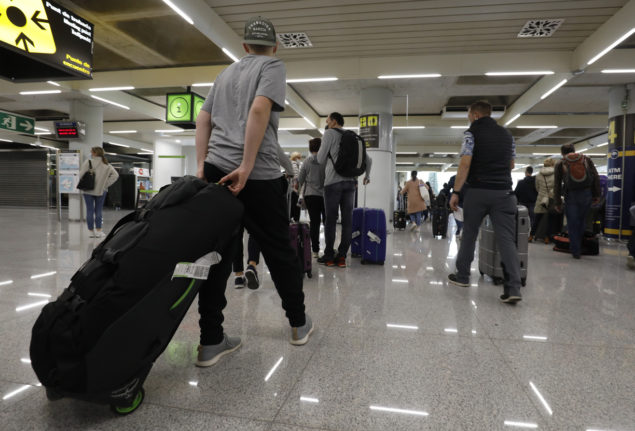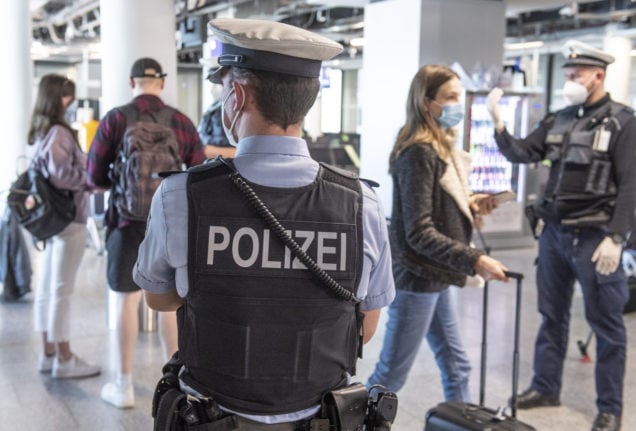According to a report published by public broadcaster ARD, there were more than 44,000 cases of insufficient or incomplete health evidence from travellers entering the country by plane, train or car between January 24th and March 29th this year. Of these, 3,753 cases involved people flying into Germany.
Strict controls on people entering the country from regions with infectious mutations of the Covid-19 virus, or those with a particularly high 7-day incidence of the virus, have been in place since January.
Under these rules, anyone returning to Germany from these regions must present a negative coronavirus test – taken within the last 48 hours – before boarding their aircraft.
In spite of these strict regulations, 668 people from areas with a particularly high coronavirus incidence rate and 237 people from regions with virus mutations were permitted to fly into the country without a recent test in the first few months of the year.
As of Wednesday, the Robert Koch Institute has listed the areas around the world which it classifies as a “risk area”, “high risk area” and “virus variant area.”

Airports are “overburdened”
Addressing the Bundestag’s Interior Committee at the end of February, federal police president Dieter Romann insisted that the airline carriers were obliged to vet all passengers at the point of departure and only let on board those with a recent negative test.
When breaches in the rules are picked up by the police, they are reported to the regional airports, who are then required to impose fines on the airlines, he explained.
“There are clearly issues here,” Romann said. “They [the airports] are of course overburdened, so they either don’t pursue the fine procedure or do so belatedly, with the result that one or more large commercial enterprises find it more economical to board people without tests.”
READ ALSO: Germany announces tougher checks at all land borders
In the light of rising coronavirus infection rates, new travel restrictions have been in force since March 30th. Under the new rules, anyone flying into Germany will be required to show a negative test, regardless of the infection rate in the country they fly in from.
Meanwhile, for “high incidence” areas and regions “of variant concern”, only transit passengers and people with residence rights in Germany will be allowed to enter the country. Guards on trains, ferries, airplanes and buses will be required to vet passengers from these areas both at the point of departure and upon entry into Germany.



 Please whitelist us to continue reading.
Please whitelist us to continue reading.
Member comments